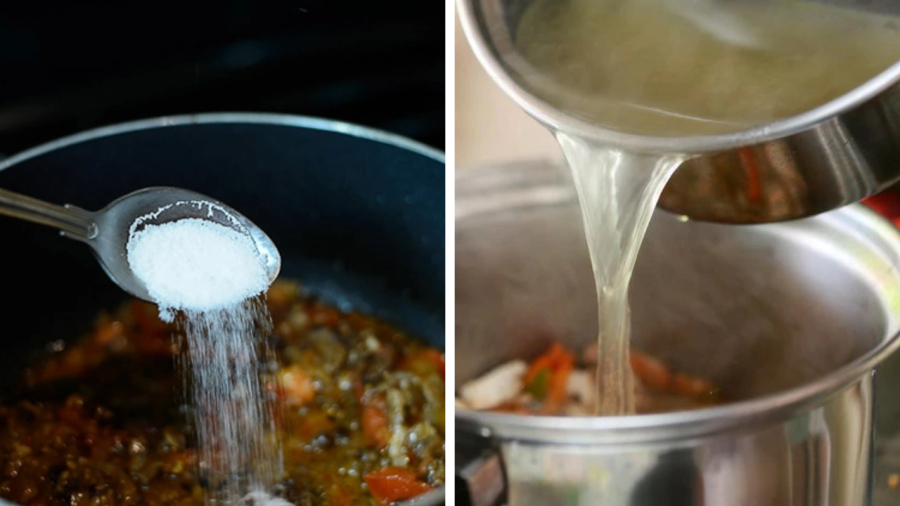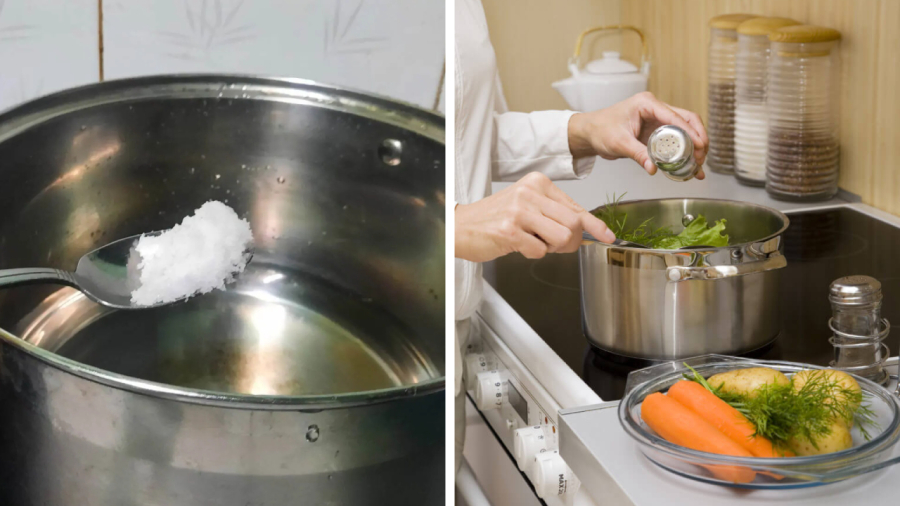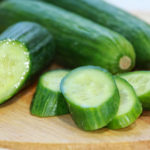When cooking, if you accidentally add too much salt or seasoning, your dish will become too salty. The first thing that comes to mind in this situation is to add water. This method is suitable for soups or broths.
Aside from this method, there are several other ways to reduce the saltiness of your dish. Let’s find out.
Add acidic ingredients
When your dish becomes too salty, you can add other spices to balance the flavor. Acidic ingredients such as tomatoes, sour fruits, lemon, vinegar, etc. can help neutralize the saltiness. Just add a small amount of these ingredients into the pot, taste it again to see if it suits your taste.
When choosing ingredients, you should also consider their compatibility with the flavor of the dish. For safety, you can choose neutral-tasting acidic ingredients like rice vinegar or white vinegar. These will work well with many different dishes.

Add sweet seasonings
In addition to adding acidic spices, you can also add sweet seasonings to balance the flavor. This method is suitable for sauces or stir-fries. For example, using brown sugar will give a caramel flavor, helping to reduce the saltiness and enhance the deliciousness of the dish. Using rock sugar will provide a more neutral flavor. Additionally, you can also use honey to season your dishes.
Add potatoes
Adding potatoes is a way to reduce the saltiness of a dish. Potatoes will absorb some of the salt and help balance the overall flavor.
You can take a raw potato, peel it and cut it into small pieces, then add it to stews, soups, or broths.
Use egg whites
Some chefs will add egg whites to their soups or broths to reduce the saltiness. Use intact egg whites (not beaten) directly into the soup/broth. When the egg whites are cooked, simply remove them and taste the dish again to see if it’s balanced.

Use tofu
Adding tofu is also a way to reduce the saltiness of soups. Just add a few pieces of tofu to the pot and bring it to a boil. Tofu will absorb some of the salt, making the soup taste better.
To prevent your dish from becoming too salty, when seasoning, you should add the spices little by little. Then, taste the flavor of the dish before adding more seasoning if necessary.
Essential Tips for Choosing and Using Eggs in Baking
Vân vào khu vực Nấu ăn của Ði?n Máy Xanh để nhận thông tin quan trọng về quy trình bếp để biết làm sao để chọn và sử dụng trứng một cách hiệu quả. Ngoài ra, bạn sẽ tìm hiểu về những lý do quan trọng khi sử dụng trứng trong quá trình nấu ăn. Đừng bỏ lỡ cơ hội này để cập nhật những kiến thức về bếp hiệu quả nhất.





































